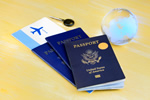Expat advice on healthcare challenges in Africa

Expat advice on healthcare challenges in Africa
Nigeria, South Africa and Kenya are all popular destinations with reasonable rankings in various surveys, but even in the cities, healthcare can be something of a lottery. Financial rewards are well rated, but quality of life, work-life balance and healthcare were all causes for concern for many respondents. Staying healthy, it seems, is a priority as the quality of healthcare leaves a lot to be desired.
As a result, expatriates are being urged to take control of their own health as much as is possible, especially regarding one major issue – water quality. Reports from nonprofit organisations state there’s a lack of access to clean water in many African states, with at least a million people unable to trust their water supplies as regards freedom from contaminants and bacteria. The large scale of the issue means most expatriates will have problems during their stays in the region, with household water filtration systems a must, especially for washing fresh products bought in local markets.
Contaminants include the bacteria causing diarrhea and typhoid fever, and newly-arrived expats from cooler countries should watch out for dehydration. Expats heading for Zimbabwe or Nigeria should make sure their health insurance is up to date and covers both countries, as healthcare is unreliable and under pressure. Nigeria has one medical professional for every 2,000 inhabitants, and public hospitals are under equipped.
Another problem relevant to expats in the region is mental health, as treatment is almost impossible to obtain as common conditions are traditionally stigmatised. Creating a reliable support network within the local expat community is essential for preventing stress and its related symptoms caused by loneliness, isolation or anxiety, and learning the local language can be helpful in forming genuine friendships outside the workplace.
Related Stories:
- Expats find peace in the covid-19 refuge of Dahab town - July 20, 2020
- Expats in Malaysia still banned from overseas travel - July 17, 2020
- HSBC Asia to cut back on internal expat relocations - July 16, 2020
- China hits its expats with 45 per cent tax on overseas earnings - July 15, 2020
Latest News:
- Tips on a trouble-free relocation as an expat overseas - July 20, 2020
- Expats find peace in the covid-19 refuge of Dahab town - July 20, 2020
- Is Kuwaitization the unintended result of the oil price crash? - July 20, 2020
- Expats unhappy abut changes to Korean points-based visa system - July 17, 2020
- Chiang Mai and Bangkok no longer bargain locations for expats - July 17, 2020
- Expats in Malaysia still banned from overseas travel - July 17, 2020
- Vietnam welcomes expats to its safe, affordable lifestyle - July 16, 2020
- Asian tiger economies reach out to expats in Hong Kong - July 16, 2020
- HSBC Asia to cut back on internal expat relocations - July 16, 2020
- Tips on integrating for newly-arrived expats - July 15, 2020


